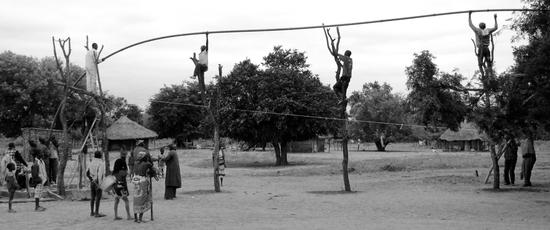Irisalda Martin Correia
Last update: 23 January 2019
The districts of Chicualacuala and Mabalane, located in the arid and semiarid zone of Gaza, are characterized by low and erratic rainfall influencing the growth and availability of pastures and water, key factors for the development of livestock. This districts lost part of their agricultural and pasture lands due to the creation of the Limpopo National Park (LNP) in 2001, reducing furthermore the access to natural resources. This study aims to evaluate the impact of the management of and access to resources and markets on cattle production systems, comparing them between villages with different levels of access to natural resources and markets and variable proximity to the LNP. Interviews were conducted with 124 cattle farmers, 12 market stakeholders and focal groups to collect information on cattle production and marketing, rules for access to natural resources, human-wildlife conflicts and perceptions regarding the LNP. The mixed agro-pastoralist system was the most prevalent with use of natural pastures and temporary water sources, with low levels of sanitary and reproductive management and consequently low productivity and off-take. The use of crop residues, watering in pumped waterholes and the Limpopo River, the continuous grazing and the use of the park areas during the dry season was observed as a response to scarcity of resources. The proximity to markets did not influence off-take while the proximity to LNP increased the interaction with elephants and buffalos and conequently human-wildlife conflicts.
Last update: 23 January 2019

